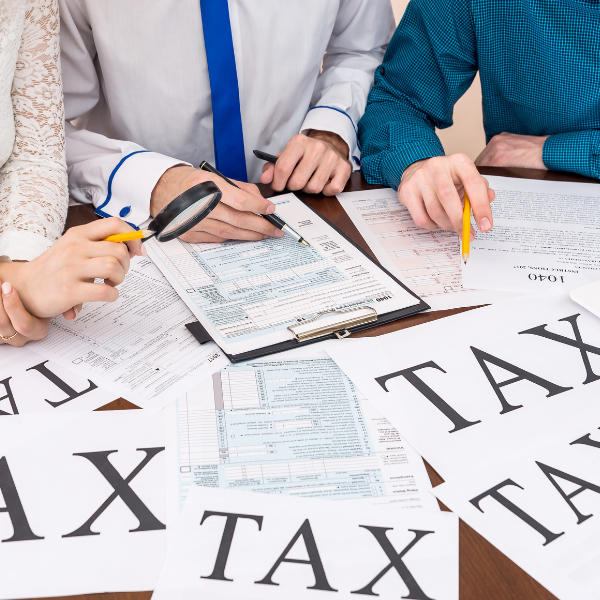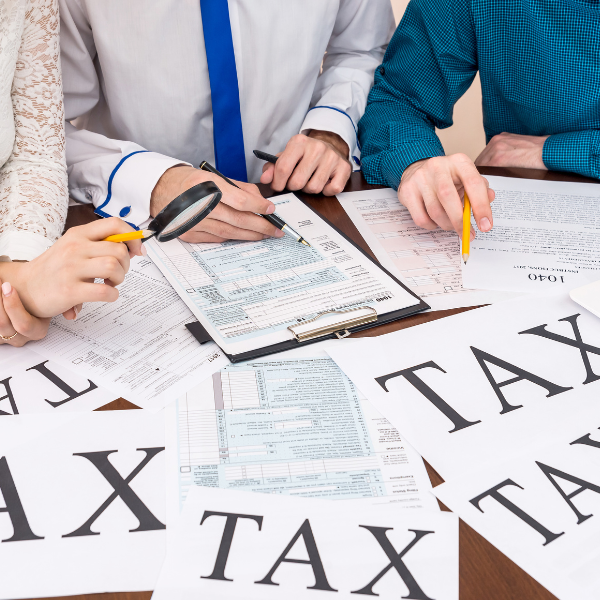Short Guide to Navigating Taxation in Luxembourg
In today’s globalized world, understanding the intricacies of taxation is vital, especially if you’re considering Luxembourg as your new home. This small but economically vibrant country is renowned for its unique tax system, attracting expatriates and businesses alike. Whether you’re planning a move to Luxembourg or just curious about its tax landscape, this comprehensive guide will provide you with the essential information you need.
Taxation in Luxembourg: Equal for Residents and Non-Residents
Luxembourg taxation is designed to be equitable, applying similar principles to both residents and non-residents, with a few exceptions. You achieve tax residency in Luxembourg after residing in the country for six consecutive months. At this point, you have the choice to file an income tax return or opt for simplified tax equalization. If you don’t have a registered address in Luxembourg, you will be considered a non-resident.

Understanding Tax Equalization
Both residents and non-residents can submit tax equalization forms when their income earned outside of Luxembourg is less than 25% of their worldwide income. This mechanism ensures that only income sourced from Luxembourg is considered when determining the appropriate tax rate.
Tax Treaties and Double Taxation
Luxembourg has tax treaties with more than 80 countries, making it an attractive destination for international professionals. These agreements prevent double taxation on an individual’s income, offering substantial relief for expatriates.
Wealth and Inheritance Tax
In 2006, Luxembourg removed the Wealth Tax for individuals, both residents and non-residents. However, for businesses, a net worth tax rate of 0.5% applies. This attractive net wealth tax, alongside other factors, makes Luxembourg a prime location for companies.
Unlike many European countries, Luxembourg maintains low inheritance taxes, which are calculated based on the net value of the estate, including both local and foreign assets. Priority is given to children, with a single child inheriting 50%, two children inheriting 66.6%, and three or more children inheriting 75% of the net estate value.
The Tax-Free Threshold
Luxembourg offers a tax-free threshold of €11,265, meaning you can earn this amount without incurring any tax liability.
Progressive Income Tax Rates
Luxembourg’s progressive income tax system means the rate at which you are taxed depends on your income level. The rates range from 0% to 42%, with the first €11,265 of earnings exempt from tax. For incomes exceeding €200,004, the top tax rate of 42% applies. Expats are drawn to Luxembourg due to its competitive tax rates.
Filing an Income Tax Return
Both residents and non-residents subjected to Luxembourg’s personal income tax must file an income tax return, typically done via Form 100. For tax equalization, different forms (163 RD for residents and 163 NRD for non-residents) are utilized.

Tax Deadlines
The Luxembourg tax year aligns with the calendar year. If you need to file a tax return, the deadline is March 31. If you don’t meet this deadline, you have until December 31 of the following year. Failing to file on time can result in fines and penalties.
Consequences of Not Filing
Delaying payment to Luxembourg’s tax authorities may lead to fines. Starting the month after the due date, you can expect a monthly fine of 0.6% of the outstanding amount. You can request an extension, which provides an additional four months to file. After that period, the following rates apply: 1% per month for months 5 to 12, 2% per month from 1 to 3 years, and 6% per month indefinitely after 3 years.
Claiming Expenses
Employees in Luxembourg can offset their tax bills by claiming certain expenses. These include:
1. Commuting: Claim up to €2,574 for travel to your workplace.
2. Company Car: Claim expenses for travel-related costs if you use a company car.
3. Overtime and Severance Pay: Certain taxes may be exempt if you work overtime, on a night shift, a public holiday, or Sunday.
How To Reduce Your Taxes? Tax Savings Plan in Luxembourg
Are you searching for ways to optimize your financial flexibility by reducing your taxable income? Luxembourg’s tax system offers a variety of deductible expenses that can help you achieve just that. In this comprehensive guide, we’ll delve into these potential deductions, providing you with valuable insights to empower you in making informed decisions to enhance your financial situation.
1. Debit Interest and Insurance Contributions:
- You can deduct interest on personal loans (excluding real estate loans), reducing your taxable income.
- Personal insurance expenses, such as health, vehicle third-party liability, and more, can also be deducted, with a maximum cap of €672 per year per person in your household.
2. Housing Savings Plan:
- If you take out a home savings policy to finance the construction, purchase or renovation of your home, you may, up to the age of 40, deduct up to 1.344 euros of paid premiums from your taxable income per year. If you have more than 40 years, you can deduct 672 euros.
3. Private Pension Plan:
- Build a private pension while potentially deducting up to €3,200 per year per taxpayer, ensuring a more secure financial future.
4. The Tax Benefits Of Buying A Rental Investment?
When you buy to rent, you must declare your rental income. However, you may reduce the amount of your rental income by deducting certain expenses, such as:
- Maintenance and repair costs relating to the property, the owner’s insurances, electricity and heat charges of the common areas if it’s a flat, administrative expenses, possible legal fees and litigation costs, etc.
- Depreciation, the rate of which depends on when the building was completed. If it was built less than 5 years ago, the rate applied is 4%. Buildings that are older than 5 years, the applied rate is 2%.
- Other expenses: interest payments under the property loan, property tax and duties and ongoing expenses.
It’s important to note that every taxpayer’s situation is unique, and these deductions can significantly impact your financial well-being. To ensure you’re making the most of these tax-saving opportunities and to explore products that suit your specific needs, we recommend discussing your circumstances with a qualified tax advisor.
Please keep in mind that the information provided here serves as guidance only, and professional advice tailored to your unique situation is essential for effective tax planning.
At LuxFlat, we’re dedicated to your well-being during your stay in Luxembourg. While we don’t provide tax services, we believe that well-informed expats make the best decisions. Feel free to reach out to us if you have questions or need further assistance. Empower your financial future today!


